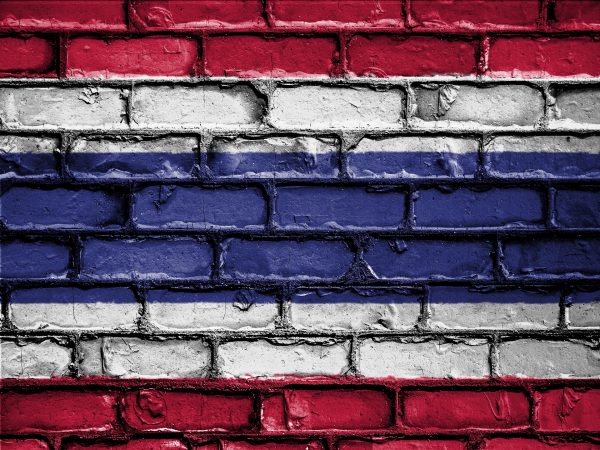ASEAN Beat | Politics | Southeast Asia
Two-thirds of respondents agreed with the Thai opposition’s argument that the leader’s time as military junta chief should count toward his constitutional term limit.
Last week, Thailand’s largest opposition party launched an audacious legal bid to cut short the tenure of Prime Minister Prayut Chan-o-cha – and it now appears that it enjoys a considerable degree of public support. Yesterday, Reuters reported on a new opinion poll showing that nearly two-thirds of Thai voters agree with the Pheu Thai Party (PTP)’s argument that Prime Minister Prayut Chan-o-cha should leave office this month.
PTP, the largest single party in the lower house of parliament, has announced that it is seeking a ruling from Thailand’s Constitutional Court over whether Prayut’s five years at the head of a military junta should count toward his eight-year constitutional term limit.
In a poll of 1,312 people conducted on August 2-4, Reuters reported that the National Institute of Development Administration (NIDA) found that 64 percent wanted Prayuth to leave office on August 23, the eighth anniversary of his appointment as prime minister of the post-coup military administration. NIDA found that another 33 percent preferred to wait for a potential court ruling.
As army chief, Prayut led a coup in 2014 that overthrew the PTP government led by Yingluck Shinawatra, the sister of the exiled former Prime Minister Thaksin Shinawatra, who was also overthrown by the army in 2006. Prayuth then served as prime minister in the military administration until an election in 2019, after which a new parliament, elected under a new military-drafted constitution, chose him to remain as prime minister.
The legal bid is just the latest in a range of attempts by Thailand’s opposition parties to reverse what they regard as an illegitimate seizure of power by Prayut. They have now brought four votes of no-confidence in the Thai leader and members of his cabinet, the most recent of which occurred last month, over claims of corruption and economic mismanagement. Meanwhile, the administration has faced periodic youth protests calling for Prayut’s resignation and for limits to be introduced on the power of the monarchy, the supra-political totem whose protection justifies the military’s repeated interventions in Thai politics.
The prime minister’s defenders argue that his term in office began either with the passage of the new constitution in 2017, or the election of March 2019. NIDA did not poll respondents on these opposing arguments, and it is hard to extrapolate national voter sentiment from a poll of just over 1,000 respondents.
But there is no good reason to doubt that the result reflects the state of public opinion as a whole. Prayut has always struggled for popular legitimacy and only won the election in 2019 thanks to the bending of electoral rules and last-minute redistricting that enabled him to paste together an unsteady coalition. (The military-drafted constitution also allowed the military to appoint all 250 members of the Senate.)
All this suggests that he faces a considerable challenge in winning the next election, which he must call by June 2023. Of course, the country’s conservative political establishment has shown few compunctions in using extra-electoral methods to quash the threat posed by Thaksin and his allies, and other forces seeking to democratize Thai society. Aside from the recent military coups d’etat, the establishment has outlawed the popular Future Forward party and brought scores of lese-majeste charges against politicians and activists who have made even oblique calls for reform to the monarchy.
However popular it might be, there is little reason to think that the PTP’s legal bid will succeed, setting the stage for a bitterly fought election next year.





















Discussion about this post